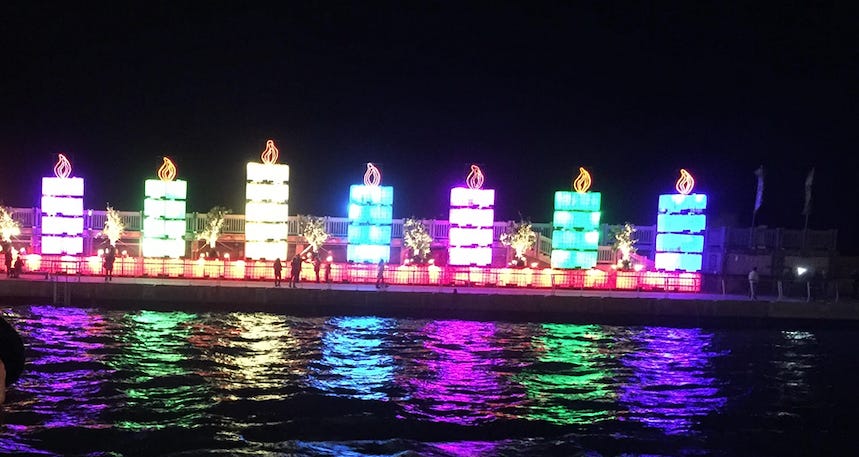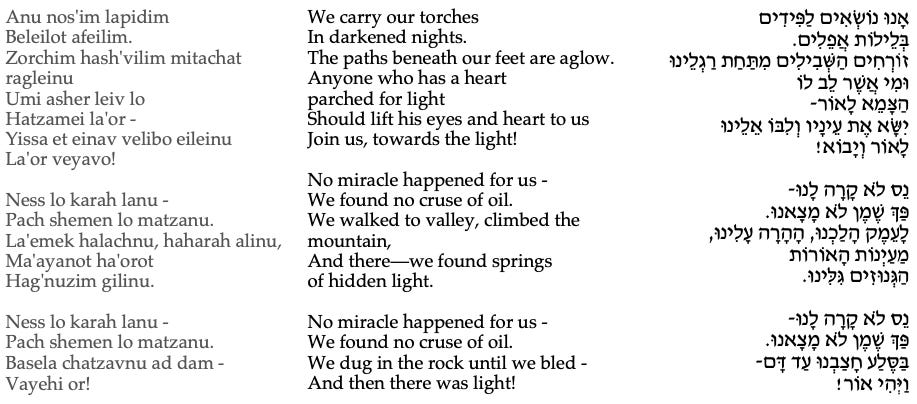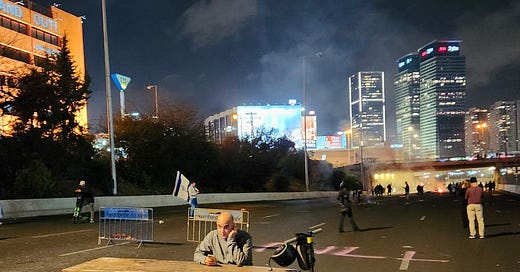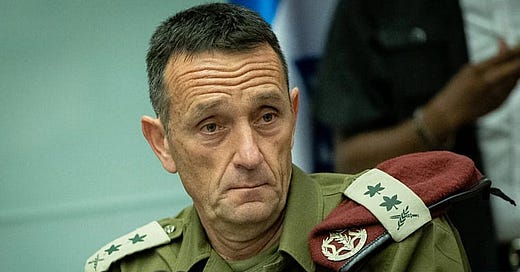

Discover more from Israel from the Inside with Daniel Gordis
Was there really a Hanukkah miracle?
Zionists said "yes," but it wasn't the one you were taught ... Turns out, miracles come in many forms.
Ask any young child what the holiday of Hanukkah is about, and they’ll almost invariably tell you that it’s about the “miracle of the oil.” True, they might throw in the Maccabees for good measure, but the miracle of the oil is the key. Oil that should have lasted for only one day, they were all taught, miraculously sufficed for eight—by which time more pure oil could be produced.
I suspect that most Israeli kids would answer the same way. But if they do, it’s a sure sign that some of the aspirations of early Zionist songwriters failed.
For when it came to Hanukkah, there was nothing more important to those early Zionists than to declare that there was no miracle of oil.
How do we know that? Because they said so explicitly. The early, popular Zionist Hanukkah song, Anu Nos’im Lapidim (“We carry torches”) could not have been clearer.
Written by Aharon Ze’ev in the early 1930’s, the Hanukkah ditty became instantly popular in the hyper-secularist, anti-religious, yet deeply Jewish yishuv. “Anyone whose heart is thirsty for light,” Ze’ev wrote, should head not to the world of religion, which is what Jews would typically have said to do, but instead, should “join us, towards the light.” Build the land, join the Zionists—and light will follow.
If they built the land, the song intimated, they—and not God— would be the ones who created the miracle. Ze’ev made his point twice: “No miracle happened for us, we found no cruse of oil.” First, they climbed the mountains only to discover wellsprings of light, and then, in the last stanza, they quarried rock until they bled. “And there was light!” It sounds a lot like the creation story in the book of Genesis, though for the Zionists, it was their bleeding hands in the earth and not God that created light.
No oil, no Maccabees. At least not there. But in another Zionist song (this one by Menashe Ravina in 1936), the Maccabees do appear. It’s called Mi Yemalel (“Who can retell?”). Once again, though, the hero of Hanukkah is not them, but the “Maccabees” of the early 20th century who were to rise up and redeem the nation once again.
Once again, no oil. No God. Note even the word “Shma” at the beginning of the second stanza. But what follows is not “the Shma” which demands faith in God, but an ode to human bravery.
When the Jerusalem Light Rail put out an ad (video below), filming the light rail as it travels along Jaffa Road in Jerusalem, everyone knew the words. The song’s a bit dated, so the “drafted” participants were obviously self-conscious singing it for the camera, but note (0:46) that even the religious guy knew the words to this “anti-religious” song.
Where they heretics, those Zionists?
Not necessarily. Those early Zionists were hardly the first to tell the story of Hanukkah without the miracle of the oil at its center. Thousands of years earlier, even the book of Maccabees II (chapter 10) did that. Why does Hanukkah last eight days? Not because of oil, but because of the holiday of Sukkot:1
10 Now Maccabeus and his followers, the Lord leading them on, recovered the temple and the city; 2 they tore down the altars that had been built in the public square by the foreigners, and also destroyed the sacred precincts. 3 They purified the sanctuary, and made another altar of sacrifice; then, striking fire out of flint, they offered sacrifices, after a lapse of two years, and they offered incense and lighted lamps and set out the bread of the Presence. 4 When they had done this, they fell prostrate and implored the Lord that they might never again fall into such misfortunes …
5 It happened that on the same day on which the sanctuary had been profaned by the foreigners, the purification of the sanctuary took place, that is, on the twenty-fifth day of the same month, which was Chislev. 6 They celebrated it for eight days with rejoicing, in the manner of the festival of booths, remembering how not long before, during the festival of booths, they had been wandering in the mountains and caves like wild animals. …
8 They decreed by public edict, ratified by vote, that the whole nation of the Jews should observe these days every year. 9 Such then was the end of Antiochus …
Turns out, there’s a long history of celebrating miracles for eight days in this season of darkness. Why eight days? Different explanations. What was the miracle? Different explanations there, too.
And since not only is this the week of Hanukkah, but today is also November 29, the anniversary of that epic vote in the United Nations in 1947, one final vision of a miracle (with, as usual, thanks to Toldot Yisrael) that has literally changed our world.
[Toldot Yisrael presents the story of the November 29th, 1947 UN vote for the Partition of Palestine. A vote that lasted a mere three minutes changed the course of Jewish history and brought twenty centuries of Jewish homelessness to an end.]
Miracles come in all forms. Did God create those miracles, or did we?
The Jewish people has long been good at finessing that question. When Menachem Begin was asked, after the attack on the Iraqi nuclear reactor in Osirak, whether the success of the mission was due to God or to the skill of the pilots, he is said to have responded, “Thank God we have pilots like that.”
And as a friend of mine in New York once said to me, “Whether or not you believe in God, the State of Israel is clearly providential.”
With that, it would be very hard to argue. However the miracles happened, they are so obvious here (despite the myriad issues that still need to be addressed) that there’s no denying them. They come in all forms. We just need to learn to see them.
To all those celebrating, wishes for a Hanukkah filled with light, joy and meaning.
Not that many years ago, the plight of African asylum seekers who had made their way into Israel was a topic of national and international discussion. Since Israel hermetically sealed the border with Egypt, the flow of asylum seekers into Israel has essentially stopped, but there are still tens of thousands of them already inside the country. What is their status? Is there discussion of how to proceed? How are they faring.
One of the people who has been most involved in this issue for years is Jean Marc Liling, who brings us up to date in this week’s podcast. Here’s a brief excerpt of our conversation. The full episode will be available, as usual, on Thursday.
Our twitter feed is here; feel free to join there, too.
Translation from https://www.biblegateway.com/passage/?search=2%20Maccabees%2010&version=NRSV















